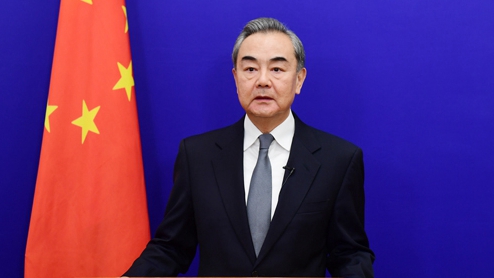Beijing, China – (October 6, 2023) – Chinese Foreign Minister Wang Yi Advocates Green Transformation for Sustainable Development in Trans-Himalayan Region
Chinese Foreign Minister Wang Yi has underlined the urgency of a “green transformation” in the trans-Himalayan region, emphasizing the importance of sustainable economic development in this strategically significant area.
Minister Wang, a member of the Political Bureau of the Communist Party of China Central Committee, made these critical remarks during his address at the third China Xizang Trans-Himalaya Forum for International Cooperation, held in Nyingchi, in southwest China’s Xizang Autonomous Region.
The Trans-Himalayan region, with its breathtaking landscapes and unique cultural diversity, plays a pivotal role in global geopolitics. It encompasses countries such as Nepal, India, Bhutan, and Tibet, and its significance extends beyond national borders. Minister Wang’s call for a “green transformation” reflects a growing recognition of the environmental challenges faced by this region and the need for sustainable solutions.
The third China Xizang Trans-Himalaya Forum serves as a platform for international cooperation, fostering dialogue and collaboration on a wide range of issues, including environmental conservation, economic development, and regional stability.
Minister Wang’s emphasis on “green transformation” underscores China’s commitment to environmental sustainability and its recognition of the region’s vulnerability to climate change. Climate-related challenges such as melting glaciers, shifting weather patterns, and environmental degradation are increasingly impacting the livelihoods and ecosystems of the trans-Himalayan region.
China’s leadership in advocating for a green agenda aligns with the global call for climate action and sustainable development. The country has set ambitious targets to reach carbon neutrality by 2060, and Minister Wang’s call serves as a practical step towards achieving these goals.
Sustainable development in the trans-Himalayan region is not only vital for the well-being of the local communities but also for the global ecosystem. The region’s rivers, including the Indus, Ganges, and Brahmaputra, are lifelines for millions of people downstream, making its ecological stability crucial for regional harmony and prosperity.
Minister Wang’s call for a “green transformation” in the trans-Himalayan region is a call to action. It is a reminder that as nations, we must collectively address the pressing environmental challenges facing our planet. In the trans-Himalayan region, where the impacts of climate change are acutely felt, sustainable practices and international cooperation are the way forward.
As the third China Xizang Trans-Himalaya Forum continues its deliberations, the world watches with anticipation, hoping for constructive discussions and tangible commitments that will contribute to a greener, more sustainable future for all.
















